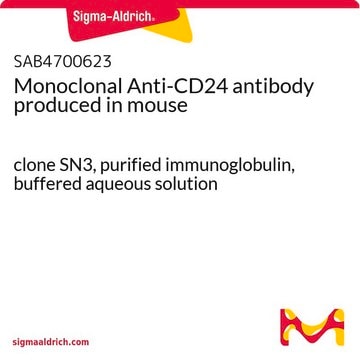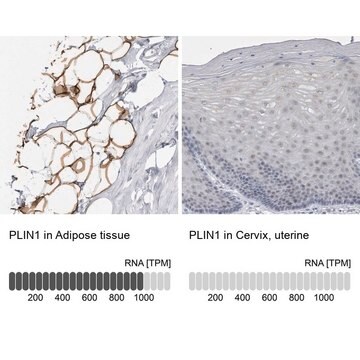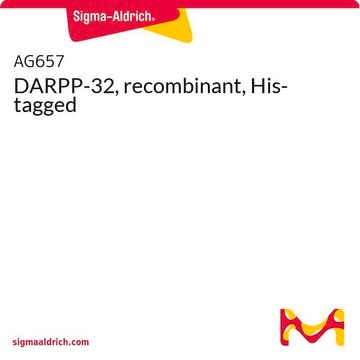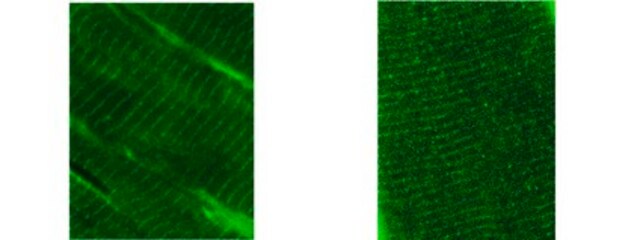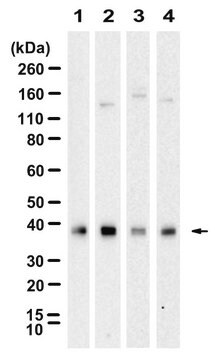CBL561
Anti-CD24 Antibody, clone SN3
clone SN3, Chemicon®, from mouse
Szinonimák:
Heat Stable Antigen, HAS
About This Item
Javasolt termékek
biológiai forrás
mouse
Minőségi szint
antitest forma
affinity purified immunoglobulin
antitest terméktípus
primary antibodies
klón
SN3, monoclonal
faj reaktivitás
human
gyártó/kereskedő neve
Chemicon®
technika/technikák
flow cytometry: suitable
immunohistochemistry: suitable
immunoprecipitation (IP): suitable
izotípus
IgG1
NCBI elérési szám
UniProt elérési szám
kiszállítva
dry ice
célzott transzláció utáni módosítás
unmodified
Géninformáció
human ... CD24(100133941)
Egyediség
Immunogen
Alkalmazás
Flow Cytometry: 1:50 - 1:100 per 10e6 cells in 100 μL final volume.
Optimal working dilutions must be determined by the end user.
Inflammation & Immunology
Immunoglobulins & Immunology
Fizikai forma
Tárolás és stabilitás
Egyéb megjegyzések
Jogi információk
Jogi nyilatkozat
Nem találja a megfelelő terméket?
Próbálja ki a Termékválasztó eszköz. eszközt
Tárolási osztály kódja
12 - Non Combustible Liquids
WGK
WGK 2
Lobbanási pont (F)
Not applicable
Lobbanási pont (C)
Not applicable
Analitikai tanúsítványok (COA)
Analitikai tanúsítványok (COA) keresése a termék sarzs-/tételszámának megadásával. A sarzs- és tételszámok a termék címkéjén találhatók, a „Lot” vagy „Batch” szavak után.
Már rendelkezik ezzel a termékkel?
Az Ön által nemrégiben megvásárolt termékekre vonatkozó dokumentumokat a Dokumentumtárban találja.
Tudóscsoportunk valamennyi kutatási területen rendelkezik tapasztalattal, beleértve az élettudományt, az anyagtudományt, a kémiai szintézist, a kromatográfiát, az analitikát és még sok más területet.
Lépjen kapcsolatba a szaktanácsadással